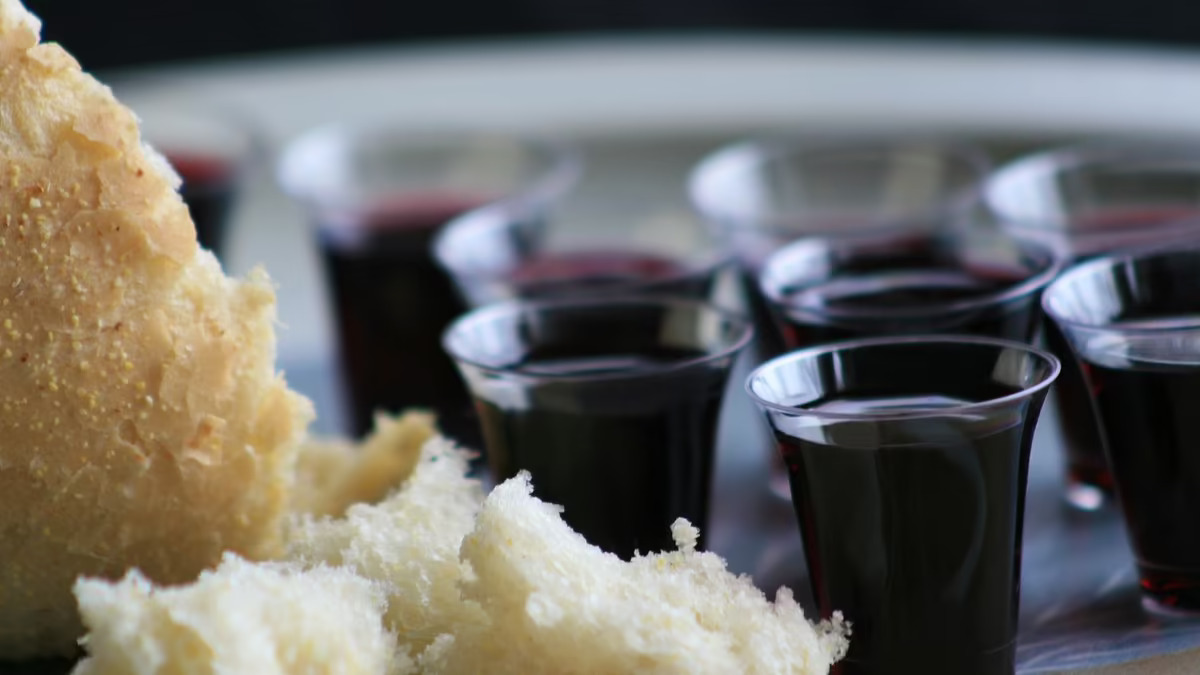The Church of England (C of E) is facing criticism over its refusal to allow non-alcoholic wine and gluten-free bread in the Eucharist ritual. Holy Communion, a sacred practice symbolizing Jesus Christ’s sacrifice and resurrection, plays a central role in the Christian faith.
However, individuals with dietary restrictions, such as those with celiac disease or alcohol intolerance, feel excluded from fully participating. This has sparked a debate on whether church rules should be adjusted to accommodate modern dietary needs while maintaining theological traditions.
Request for Change and Church Leaders’ Response
Ahead of the General Synod meeting in London, Rev Canon Alice Kemp raised concerns about the exclusion of individuals unable to consume gluten or alcohol. She proposed allowing the legal use of gluten-free and alcohol-free elements to make the ritual more inclusive. Currently, those who cannot consume these substances are limited to receiving only one element (bread or wine) or, in some cases, neither.
In response, Bishop Michael Ipgrave, chair of the church’s liturgical commission, stated that receiving only one element is still considered full participation in the sacrament, as is often practiced in special cases, such as with sick individuals or children.

According to Ipgrave, physical consumption is not the only way to partake in Holy Communion, as believers can participate spiritually. Church law specifies that the bread used must be made from wheat flour and the wine must be fermented grape juice.
The synod acknowledged that these rules may create difficulties for some worshippers but argued that the current accommodations, such as low-gluten bread options, are sufficient. They maintained that non-alcoholic wine and entirely gluten-free wafers cannot be permitted, as they do not align with long-standing theological definitions.
Legal and Practical Challenges
The Church of England’s position is rooted in its canon law, which defines communion bread as being made from wheat flour and wine as fermented grape juice. The rejection of non-alcoholic wine is based on the belief that fermentation is an essential process.
Similarly, wafers made from alternative ingredients like rice or tapioca do not qualify as “bread” under church doctrine. While low-gluten wheat bread is permissible, fully gluten-free options are not. The synod’s stance emphasizes maintaining the integrity of the sacrament rather than modifying it to meet dietary needs.
For those unable to consume the traditional elements, the C of E offers alternatives such as receiving only one element or opting for a blessing instead of partaking in communion. The Church has made adjustments in the past, such as allowing individual cups during the COVID-19 pandemic to reduce the spread of infection.
However, the debate continues as some argue that further changes are necessary to ensure full inclusivity. The discussion highlights the ongoing tension between maintaining religious tradition and adapting to the needs of modern congregations.


